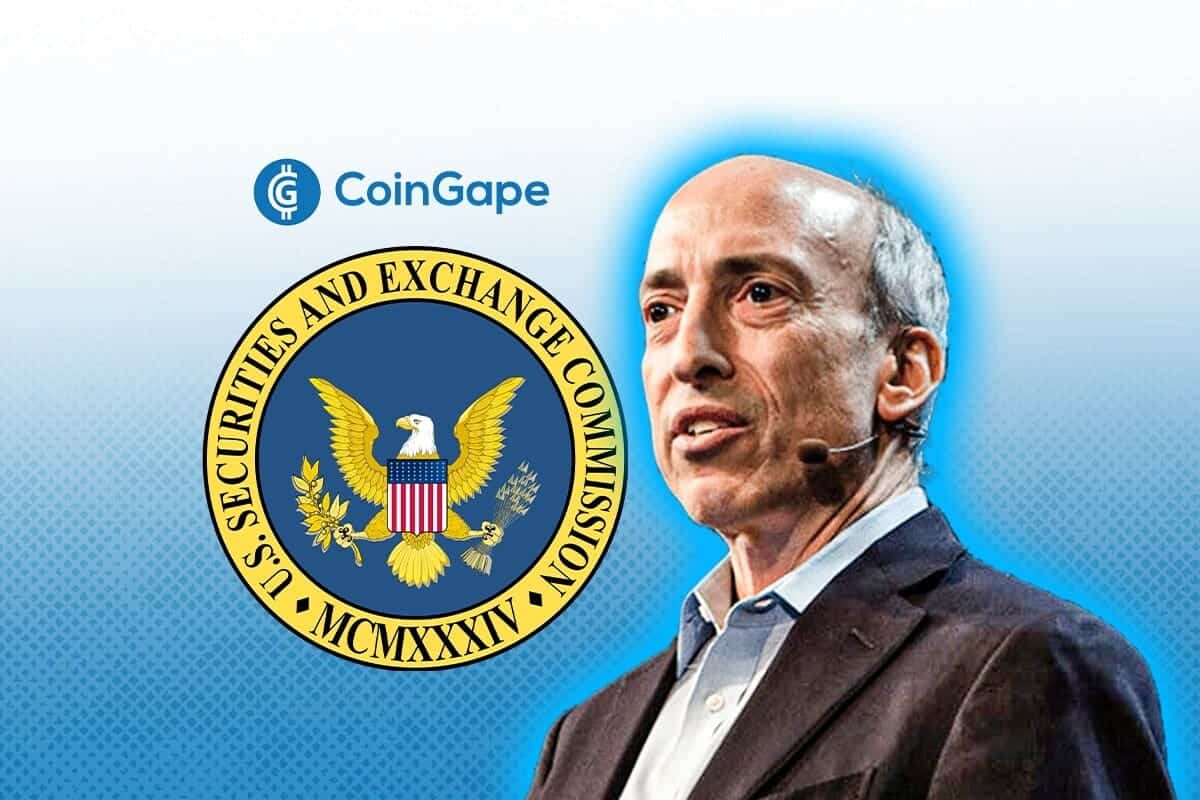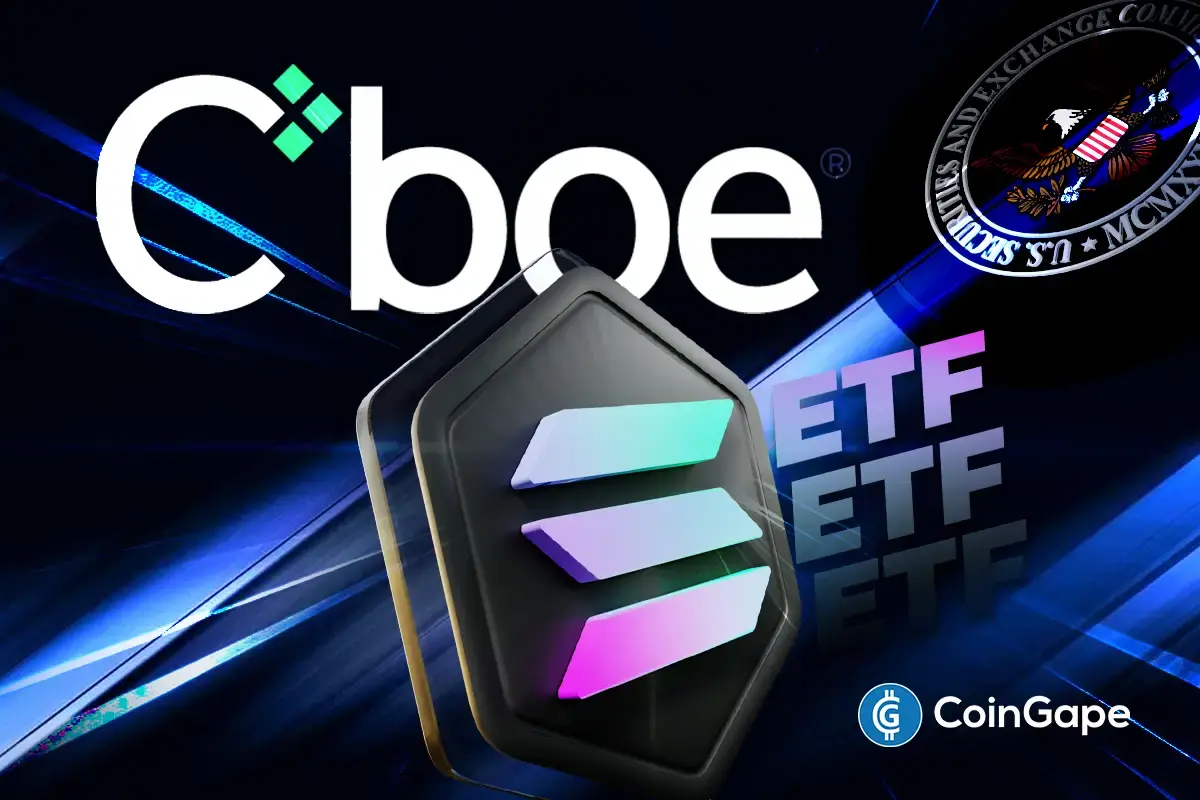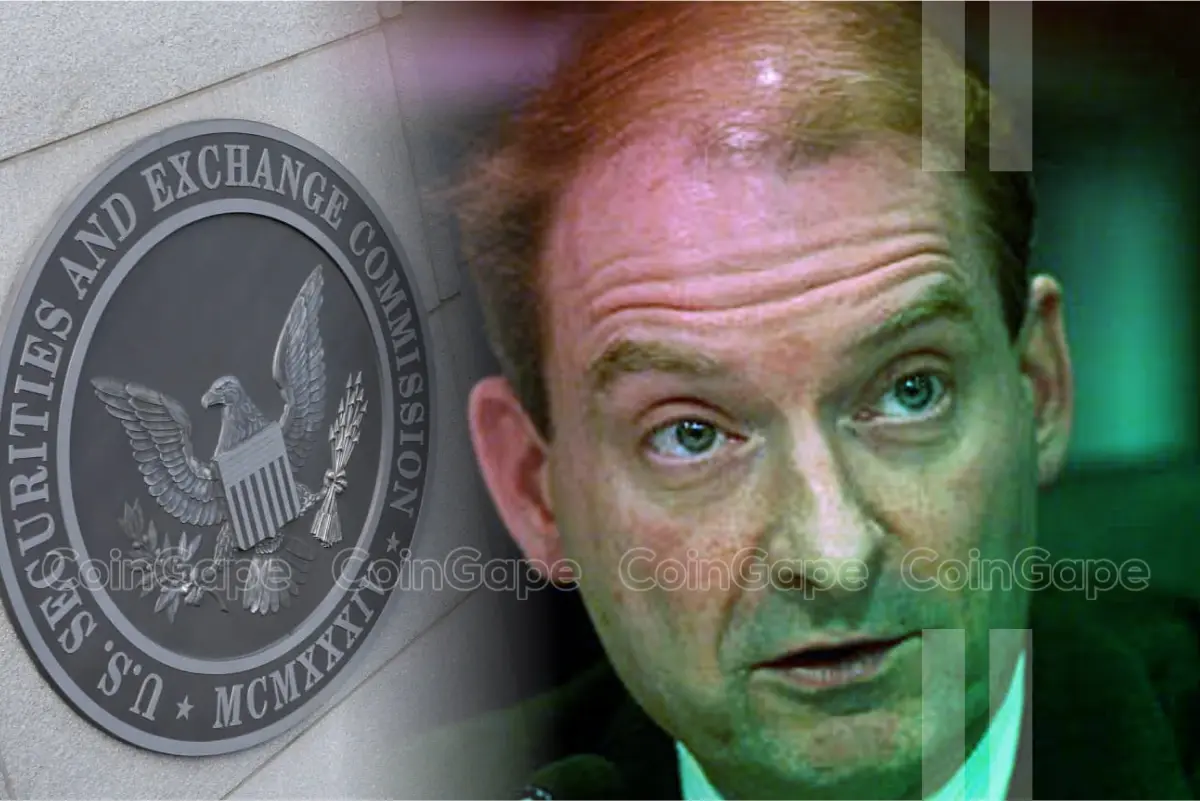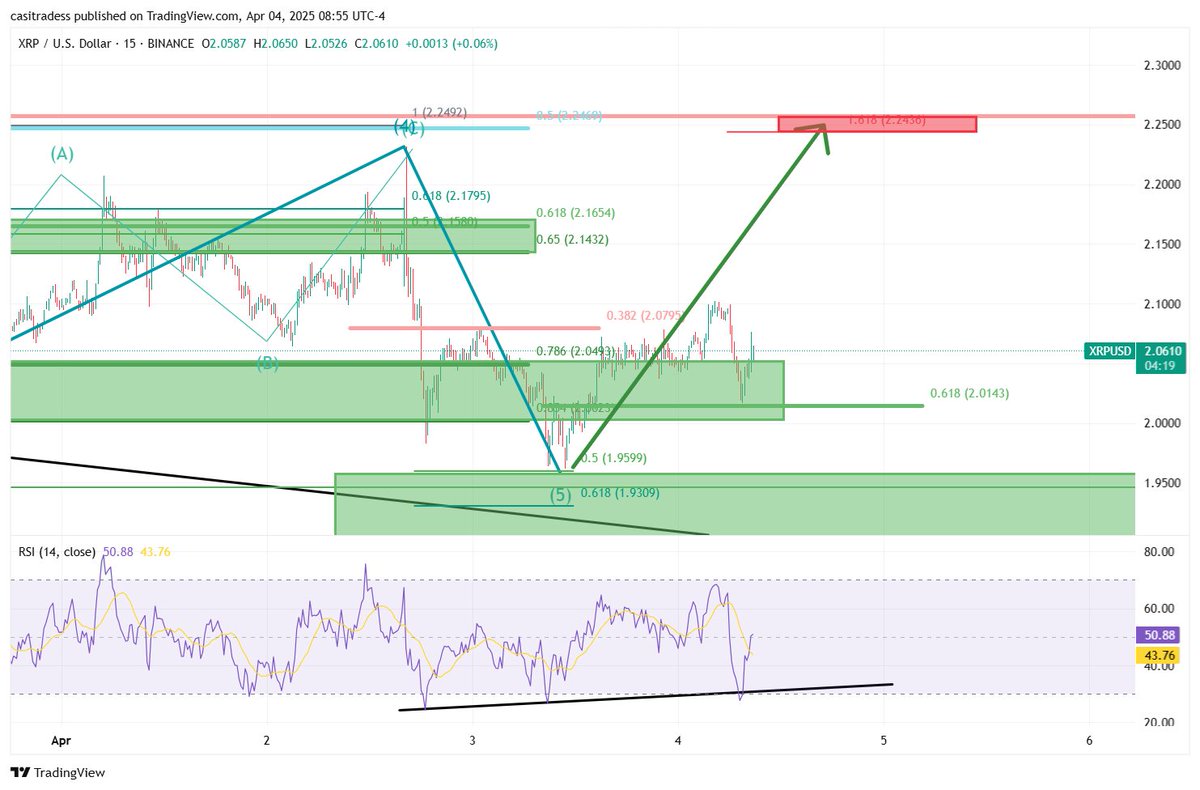Regulation
Gary Gensler Removal Pushed by Crypto Execs in White House

On Thursday, top representatives of the Crypto industry met with the White House officials to debate the future of cryptocurrency regulation in the United States.
The event which was hosted by Rep. Ro Khanna included representatives from the Biden administration and the crypto industry where major policies and regulations as well as some incidences like discharge of SEC Chair Gary Gensler were discussed.
Crypto Execs Push for Gary Gensler’s Removal
The meeting was attended by U. S. Deputy Secretary of the Treasury Wally Adeyemo, National Economic Council Director Lael Brainard, and White House Deputy Chief of Staff Bruce Reed. Other attendees included Kristine Lucius, Director of Legislative Affairs for Vice President Kamala Harris.
On the crypto side, Ripple’s CEO Brad Garlinghouse, Uniswap’s Hayden Adams, Circle’s CEO Jeremy Allaire and the billionaire Mark Cuban were in the meeting.
Executives of cryptocurrency companies expressed their concerns on the existing legal framework especially on the SEC in the United States of America. The conversation also addressed the potential dismissal of SEC Chairman Gary Gensler, which shows the industry’s discontent with what they consider aggressive actions towards digital assets.
Kamala Harris’ Anti Crypto Treasury
Vice President Kamala Harris is said to be eyeing Wally Adeyemo for the Treasury Secretary position if she becomes president. Adeyemo, who is currently the Deputy Treasury Secretary, has been an outspoken opponent of the cryptocurrency industry, as he believes that it can be used for criminal purposes and is a threat to national security.
This has raised fears among the crypto community on the future of digital assets in the U. S. given that his appointment may result to enhanced regulation and enforcement. Mostly because he was present at te meenting.
This is in contrast to the mission of Donald Trump who has stated that his first order of business on assuming office will be to fire Gensler the current chair of the SEC. Furthermore, Gemini co-founder Cameron Winklevoss stated that Kamala Harris should support the crypto industry by firing Gary Gensler. Supporting this view was John Deaton who encouraged the Democrat’s presidential candidate Kamala Harris to prove her support to the crypto fraternity by vouching for the removal of Gary Gensler.
US Political Trend and Upcoming Debates
With the 2024 election campaign heating up, the crypto industry is now trying to establish the issue as a non-partisan one. While Donald Trump has been quite bullish on cryptocurrency, Kamala Harris has not been as vocal, although her team has recently engaged with the cryptocurrency industry.
Oh man! The chances of a pro-Bitcoin president are looking slim. https://t.co/716JIOrXBo pic.twitter.com/3pDZSTY7bW
— Ali (@ali_charts) August 8, 2024
Crypto analyst Ali Martinez also weighed in on the political situation and said, “Oh man! The chances of a pro-Bitcoin president are looking slim, with Trump odds at 50 and Kamala at 49.”
Amid these talks, ex-president of the United States, Donald Trump, has accepted to participate in a number of live debates with Harris in September. Concurrently, as per a Coingape report Donald Trump Jr. and Eric Trump have issued warnings about scammers impersonating the Trump family, hinting at a possible crypto-related initiative from the family soon.
Also Read: Kamala Harris and Donald Trump Agrees On Debate Schedule
Disclaimer: The presented content may include the personal opinion of the author and is subject to market condition. Do your market research before investing in cryptocurrencies. The author or the publication does not hold any responsibility for your personal financial loss.
Regulation
Ripple Whales Move $429 Million, What Is Going On?

Ripple whales have been highly active in recent hours, transferring large amounts of XRP tokens between unknown wallets. In total, 267,857,140 XRP, which, at the time of writing, was approximately $572,238,240, was transferred. These large XRP whales are believed to have a connection to Ripple’s ongoing legal battle and its on-demand liquidity (ODL) sales.
These massive transactions were potentially triggered by the decision of the SEC to lift the injunction against institutional sales for Ripple recently. As a result, Ripple can now proceed with its ODL business, likely contributing to the recent surge in large-scale XRP transfers.
Ripple Whales Move $572 Million
Whale Alert, has recently reported a flurry of XRP transfers. Four transactions were executed within a short span, and every swap was equal to 66,964,285 XRP, which amounts to about $143 million. These huge transactions have elicited quite a stir among the members of the crypto space regarding their size and the frequency.
While the reason behind the transfers is still uncertain, a large volume of XRP moving to unknown wallets could be tied to Ripple’s operations. Given that these moves occurred after the SEC has decided to remove the injunction on Ripple’s institutional sales, a correlation between Ripple’s liquidity management and institutional sales has emerged.
Such large movements have also attracted the attention of the market observers to think that Ripple may be gearing up for expansion of its ’on-demand liquidity’ solution. This could explain why this wave of whale is being observed today based on the firm’s capacity to continue with these institutional sales.
Ripple Legal Victory and Influence on XRP Transactions
Ripple’s legal situation with the U.S. Securities and Exchange Commission (SEC) has been a key factor influencing the company’s operations. Recently, as part of Ripple’s decision to drop its cross appeal against the SEC, the Commission agreed to remove the injunction that had previously restricted Ripple from conducting institutional sales of XRP. This decision paves the way for Ripple to resume its on-demand liquidity services, a core part of its business.
This movement should help Ripple expand the availability of liquidity solutions and its penetration in the international markets. The absence of the injunction will allow Ripple to transact with more XRP with institutional clients, which may be fueling the whale activities.
Subsequently, since Ripple’s ODL platform focuses on large XRP transactions, whales are likely to be engaged in this kind of activity as they provide liquidity. At the same time, Coinbase Derivatives has submitted new applications with the U.S. Commodity Futures Trading Commission (CFTC) to self-certify XRP futures contracts.
XRP Price Trend Amid Whale Movements
XRP’s recent market behavior also reflects these developments, with the cryptocurrency showing signs of strength. According to crypto analyst Casi Trades, after reclaiming the $2.05 support level, XRP price trend has set its sights on the next key resistance level at $2.24.
This level is particularly significant, as it aligns with both the macro and micro wave structures of XRP’s price movements.
Experts are keeping a close eye on XRP’s price action, with some predicting that the currency could break out of its current resistance levels and potentially reach new highs. The next levels to watch include $2.70, $3.05, and eventually $3.80, which could mark a new all-time high for XRP price.
Disclaimer: The presented content may include the personal opinion of the author and is subject to market condition. Do your market research before investing in cryptocurrencies. The author or the publication does not hold any responsibility for your personal financial loss.
Regulation
US SEC Acknowledges Fidelity’s Filing for Solana ETF

The U.S. Securities and Exchange Commission (SEC) has formally acknowledged the filing for Fidelity’s spot Solana (SOL) Exchange-Traded Fund (ETF).
This marks a key development in the financial industry, as Fidelity seeks to list its Solana ETF on the Cboe BZX Exchange. The acknowledgment comes after Fidelity submitted a proposed rule change, paving the way for the potential approval of the product.
Fidelity’s Spot Solana ETF Proposal
The SEC’s acknowledgment follows Fidelity’s filing to list and trade shares of the Fidelity Solana Fund under the Cboe BZX Exchange. The proposed rule change, initially submitted on March 25, was later amended on April 1, 2025, to clarify certain points and add additional details.
The amended proposal aims to list the Solana ETF under BZX Rule, which pertains to commodity-based trust shares. According to the Cboe BZX Exchange, Fidelity plans to register the shares with the SEC through a registration statement on Form S-1.
Fidelity’s experience with crypto ETFs, having launched the Fidelity Wise Origin Bitcoin Fund (FBTC) and the Fidelity Ethereum Fund (FETH), has prepared it for this new initiative. FBTC has drawn substantial interest, accumulating nearly $17 billion in assets, while FETH currently manages around $975 million.
This Is A Developing News, Please Check Back For More
Disclaimer: The presented content may include the personal opinion of the author and is subject to market condition. Do your market research before investing in cryptocurrencies. The author or the publication does not hold any responsibility for your personal financial loss.
Regulation
US Senate Banking Committee Approves Paul Atkins Nomination For SEC Chair Role

The U.S. Senate Banking Committee has voted to approve Paul Atkins’ nomination for the role of Chair of the Securities and Exchange Commission (SEC). The vote, which took place on Thursday, passed with a narrow margin of 13-11, along party lines.
Paul Atkins, nominated by President Donald Trump, now moves one step closer to taking over the top regulatory position at the US SEC.
Senate Banking Committee Approves Paul Atkins Nomination
Paul Atkins’ nomination for SEC Chair has received approval despite sharp opposition from Democratic members of the Senate Banking Committee. The vote was entirely split, with Republicans supporting Atkins and all Democrats opposing the decision.
This partisan divide highlights the contentious nature of Atkins’ confirmation, which had been under scrutiny for several reasons.
The committee’s approval now clears the path for Atkins to proceed to the full Senate for a final confirmation vote. Given the Republican-controlled Senate, it is widely expected that Atkins will secure the necessary votes to take over the SEC leadership. With Republicans holding a 53-47 majority in the Senate, the confirmation process is anticipated to move forward swiftly.
This Is A Developing News, Please Check Back For More
Disclaimer: The presented content may include the personal opinion of the author and is subject to market condition. Do your market research before investing in cryptocurrencies. The author or the publication does not hold any responsibility for your personal financial loss.
-

 Bitcoin22 hours ago
Bitcoin22 hours agoArthur Hayes Sees Tariff War Pushing Bitcoin Toward $1 Million
-

 Market22 hours ago
Market22 hours agoDogecoin Faces $200 Million Liquidation If It Slips To This Price
-

 Ethereum21 hours ago
Ethereum21 hours agoCrypto Analyst Who Called Ethereum Price Dump Says ETH Is Now Undervalued, Time To Buy?
-

 Market19 hours ago
Market19 hours agoIMX Price Nears All-Time Low After 30 Million Token Sell-Off
-

 Market23 hours ago
Market23 hours agoSEC’s Crypto War Fades as Ripple, Coinbase Lawsuits Drop
-

 Altcoin21 hours ago
Altcoin21 hours agoExpert Calls On Pi Network To Burn Tokens To Revive Pi Coin Price
-

 Market21 hours ago
Market21 hours agoSEC’s Guidance Raises Questions About Tether’s USDT
-

 Market18 hours ago
Market18 hours agoKey Levels To Watch For Potential Breakout




















✓ Share: